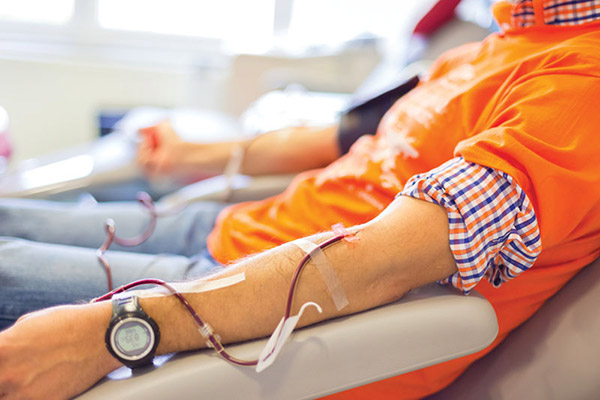
The Indian government stated trans and gay people can not donate blood. In an affidavit, it stated,” exclusions are based on due consideration of scientific evidence”. Read to know more.
Who can donate blood?
The Center, through an affidavit filed by the Union Ministry of Health & Family Welfare, told the Supreme Court that the exclusion of gay, transgender, and female sex workers from donating blood by including them in the “at risk” category for HIV, Hepatitis B or C is based on scientific evidence. The response is following Thangjam Singh’s motion seeking to remove the prohibition on transgender and gays from donating blood.
These groups are denied the option to donate blood under clauses 12 and 51 of the National Blood Transfusion Council (NBTC) and the National Aids Control Organisation’s 2017 report, “Guidelines for Blood Donor Selection & Blood Donor Referral”. Singh, a member of the transgender community was challenging it. This is because it is “violative of Articles 14, 15 and 21 of the Constitution of India to the extent they exclude transgender persons. Men having sex with men and female sex workers from being blood donors”.
More on the plea and affidavit
In the 2021 PIL “Thangjam Santa Singh v. Union of India,” a Manipur-based transgender rights activist challenged the constitutional validity of the guidelines barring people from donating blood. Singh moved to the Apex Court contending the exclusion based on sexual orientation and gender identity is “completely arbitrary. Unreasonable, and discriminatory and also unscientific”. Additionally, the plea highlights that if you donate blood it is always tested for infectious diseases. Hence, the guidelines violate the right to equality. “There is also substantial evidence to show that transgender persons, men having sex with men and female sex workers are at risk” for HIV, Hepatitis B or C infections,” stated the government in its affidavit.
The affidavit also cites several “reputed scientific journals”. The Center also referred to the 2020-2021 Annual Report of the Department of Health and Family Welfare. The report states a “6 to 3 times higher HIV prevalence among adults who are Hijras, Transgenders, MSM, and female sex workers”. In response to the petitioner’s argument on screening, the Center points to the “residual window period even with the best of tests. Like Nucleic-acid testing (NAT) test”. This indicates the time between exposure and infection. Moreover, “the right of the recipient to receive a safe blood transfusion far outweighs the right of an individual to donate blood,” concluded the affidavit.
